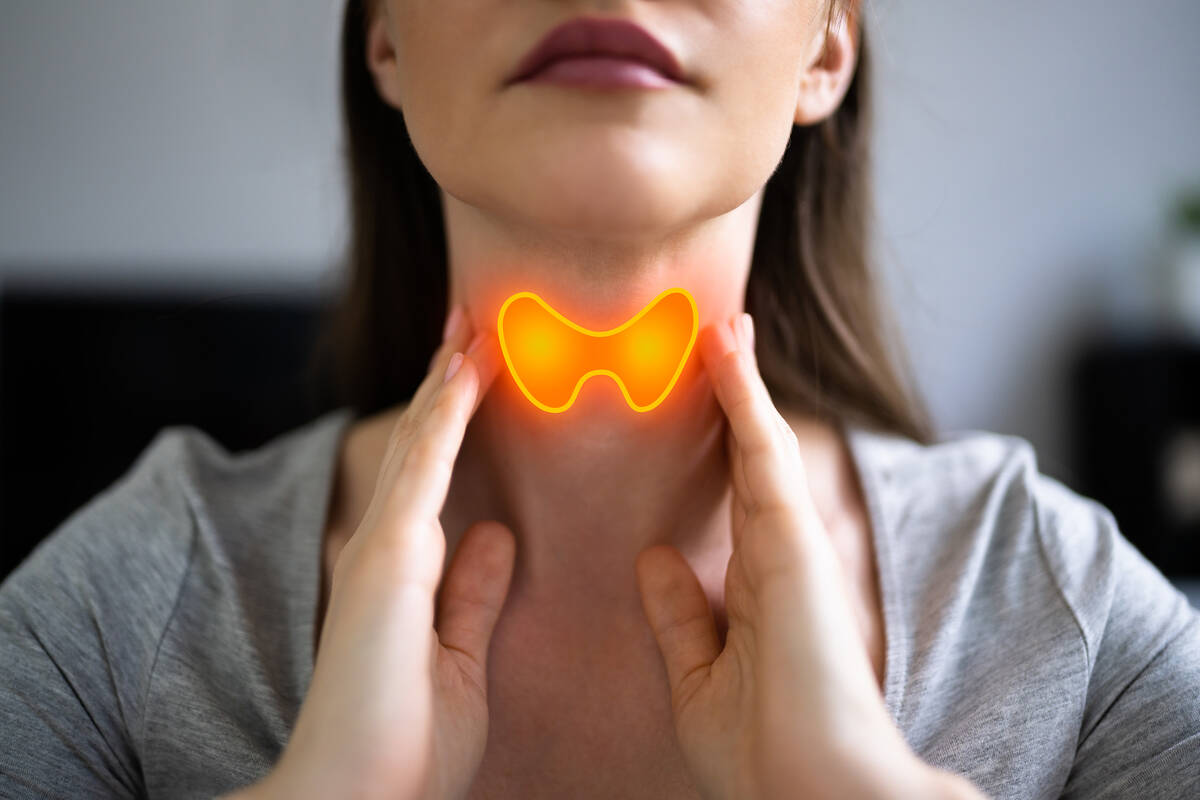4 of the most common thyroid conditions
Question: I recently read that thyroid issues affect women more often than men. Can you explain what the thyroid is and how it affects my body? Can I do anything to prevent having issues with my thyroid as I age?
Answer: The thyroid is a small butterfly-shaped gland at the neck’s base. It has a significant effect on the body in that it produces hormones that help regulate many of your body’s functions.
The thyroid gland produces two main hormones: thyroxine (T-4) and triiodothyronine (T-3). These hormones keep your body’s metabolism consistent, aid in maintaining your temperature, have an impact on how well your nervous system functions and can affect your heart rate as well as blood pressure. A third hormone, known as calcitonin, which aids in controlling the level of calcium in your blood, also is produced by your thyroid gland.
Unfortunately, there are numerous disorders that can affect the thyroid, and women are at higher risk for thyroid issues than men. According to the American Thyroid Association, about 1 in 8 eight women will suffer from thyroid illness during their lifetime.
Although it is believed that the development of thyroid illness is connected to a person’s autoimmune system, it is unknown why women are more susceptible to thyroid disease. Genetics may play a role. Women of any age can experience thyroid issues, although women who have just given birth or are going through menopause are more likely to experience thyroid concerns.
The most commonly known thyroid conditions include:
Thyroid nodules: About half the population in the U.S. are estimated to have a nodule by the time they are 60. Although some thyroid nodules may grow to a size where they are visible, frequently these nodules will go undetected until discovered either by a health care professional during a physical examination or incidentally during imaging of the neck for another reason.
Fortunately, most thyroid nodules are benign, but a workup is necessary to determine whether thyroid cancer may be present. Evaluation of a suspected nodule may include a blood test and an ultrasound.
Hyperthyroidism: When the thyroid gland makes too much thyroid hormone, a condition known as hyperthyroidism, or overactive thyroid, can occur. While the whole thyroid often is involved in a hyperthyroid state, sometimes benign nodules can cause an increase in hormones.
Hyperthyroidism accelerates the body’s metabolism, causing a variety of symptoms, including unexpected weight loss; increased hunger; a rapid or irregular pulse; sweating; mood issues, such as increased anxiety or irritation; and changes in the menstrual cycle.
Depending on a person’s age and health history, treatment options include medication to reduce hormone levels, or radioiodine, which destroys the thyroid and its ability to make thyroid hormone. Some patients may be eligible for surgery to remove all or part of the thyroid.
With thyroid surgery or radioactive iodine, patients are expected to require thyroid hormone replacement therapy.
Hypothyroidism: Hypothyroidism can occur when the thyroid gland does not make enough thyroid hormone.
There may not be noticeable symptoms in the early stages of this condition as symptoms often develop slowly or are attributed to other ailments. For instance, many patients report fatigue and weight gain, although it must be acknowledged that these are nonspecific symptoms that could be from a host of reasons other than thyroid dysfunction.
As the metabolism continues to slow, other symptoms may occur, including constipation, raspy voice, muscle weakness and sensitivity to cold.
A blood test is necessary to diagnose this condition.
Treatment for hypothyroidism usually involves taking a thyroid medication known as levothyroxine to return hormone levels to normal.
Hashimoto’s disease: Hashimoto’s disease is an autoimmune disorder that occurs when immune system cells lead to the death of the thyroid’s hormone-producing cells, resulting in hypothyroidism.
Although anyone can develop Hashimoto’s disease, which is also known as chronic autoimmune thyroiditis, it is most common among middle-aged women. The primary treatment is thyroid hormone replacement.
There is no way to prevent thyroid disease. The best course of action is to establish a routine to get annual health physicals and be aware of any unusual symptoms you experience. Speak with your health care team about concerns, including tests for thyroid hormone if you are concerned. If you are suspected of having thyroid issues, an evaluation by a specialist may be warranted.
Dr. Victor Bernet is an endocrinologist with the Mayo Clinic in Jacksonville, Florida.













